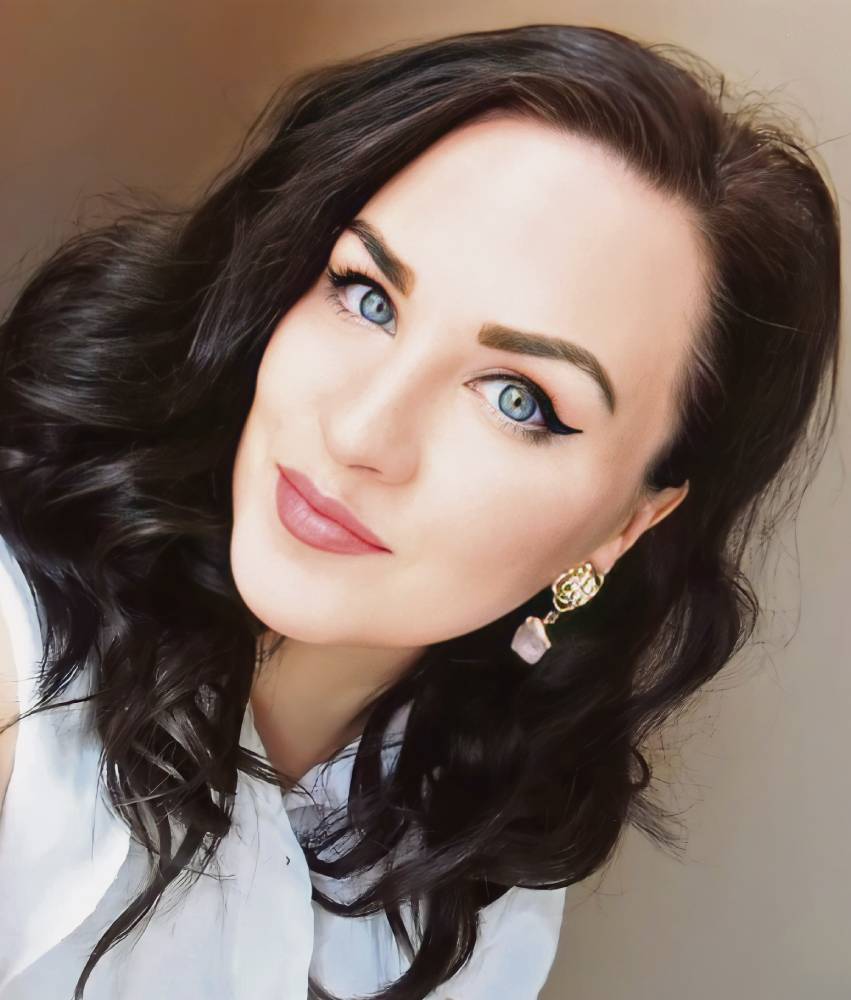45 years from the death of a Diva
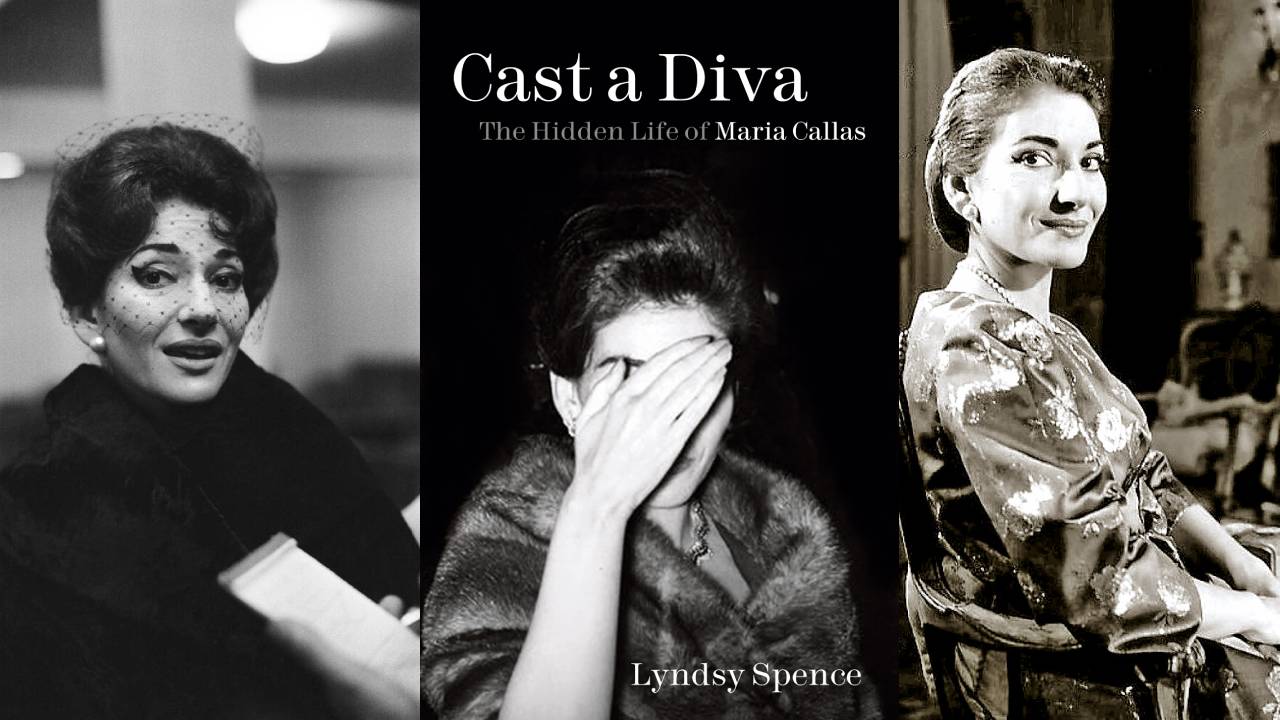
One of the biggest misconceptions is that Maria Callas (1923-1977) died of a broken heart after two great losses: the death of Aristotle Onassis and her vocal decline. Not only is it a lie but a disservice to her legacy and to women everywhere. The truth was far more devastating: she was a very ill woman and, for decades, had been neglected by medical professionals.
My research into her cultural identity and the social practices of Greece and Italy reinforced how incredible she was. As a female, she had few rights and was first her father’s property and then her husband’s. Under Italian law—she lived in Italy from 1947-62—she could not divorce her husband, Battista Meneghini, and risked being imprisoned for committing adultery with Aristotle Onassis. Women have come a long way in terms of their rights; however, from a medical perspective, women’s health remains in the dark ages.
Despite being the most famous opera singer in the world and earning millions in ticket sales and royalties, Callas was bound to patriarchal laws.
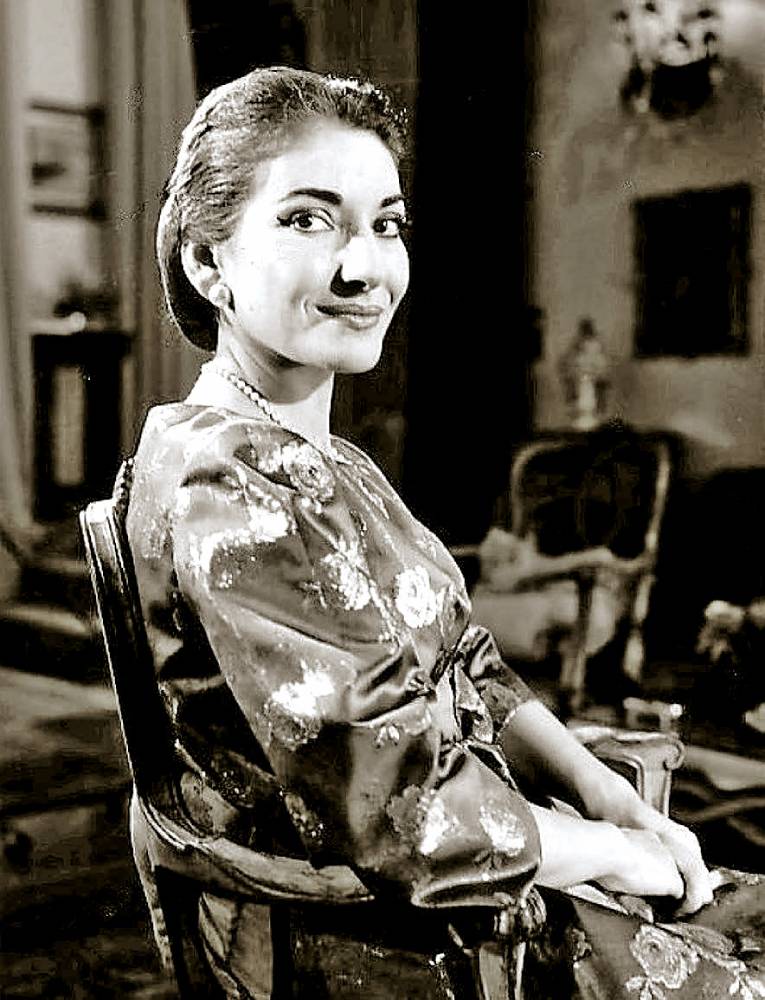
Even Onassis adhered to the customs of Ancient Greece, namely the Solonian Constitution, whereby any woman who offered pre-marital sex placed herself outside of the Oikos (the family, the family’s property, and the family home). He said that was why he could not marry her if she were free of Meneghini. Her entire life was a paradox.
Undoubtedly, this caused mental anguish but what of her physical ailments?
They began in the late 1940s before Callas turned thirty. She complained of rashes, low blood pressure, metabolism issues, vision loss, vertigo, and flu-like symptoms.
Letters, written to Meneghini, from 1947 onwards plead for sympathy but he offered her none.Nor did her doctors find the cause behind her mystery ailments and dismissed her as a hypochondriac. ‘You singers are crazy,’ her doctor said.
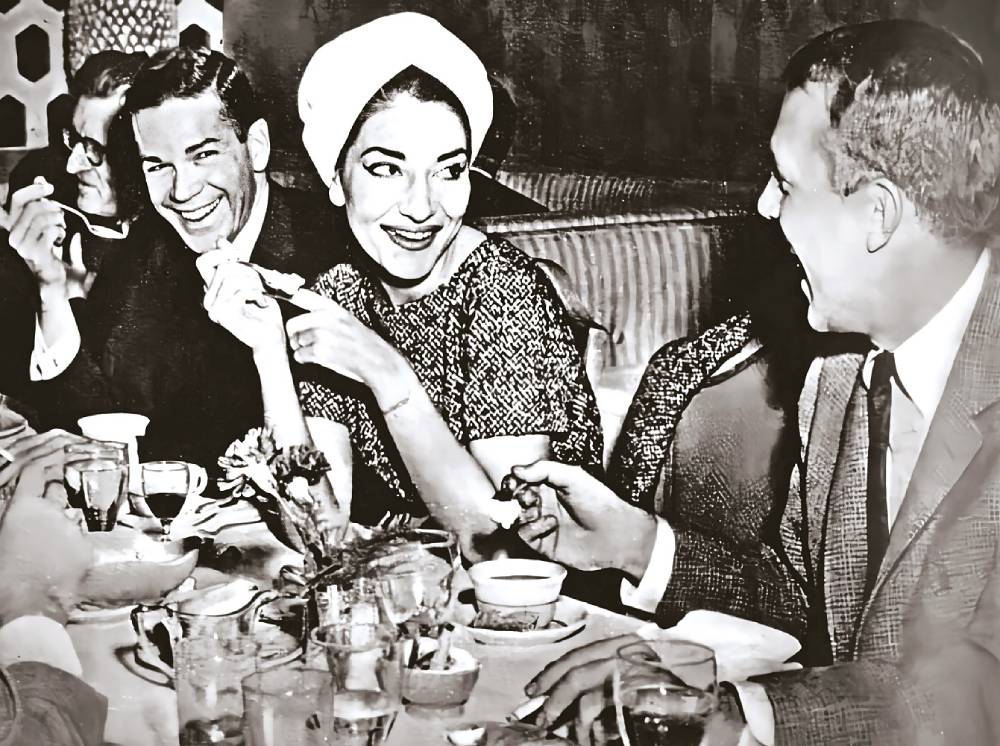
Many believe Callas’s weight loss in 1953 contributed to her vocal, and physical, decline. Research has shown she undertook dangerous and experimental iodine treatments by a pioneering doctor in Switzerland, which had grave consequences on her health.
By the mid-1950s, she was burnt out and visited Doctor Feelgood (the German quack Dr Max Jacobson) who gave her ‘liquid vitamins’. These turned out to be vitamin B, amphetamine and methamphetamine – the powerful stimulants speed and meth. In Callas’s defence, she believed these were indeed vitamins.
Meneghini, who was also her manager, turned a blind eye; he was pushing her too hard and cared only about money. To a friend, she wrote, ‘I never was a strong horse. I’m a racehorse, rather delicate and sensitive. Damn it!’
Health reports, to which I was given access, revealed she had a nervous breakdown in early 1958 and risked being hospitalised, not only for her mental health but an eating disorder – in those days, both were misunderstood.
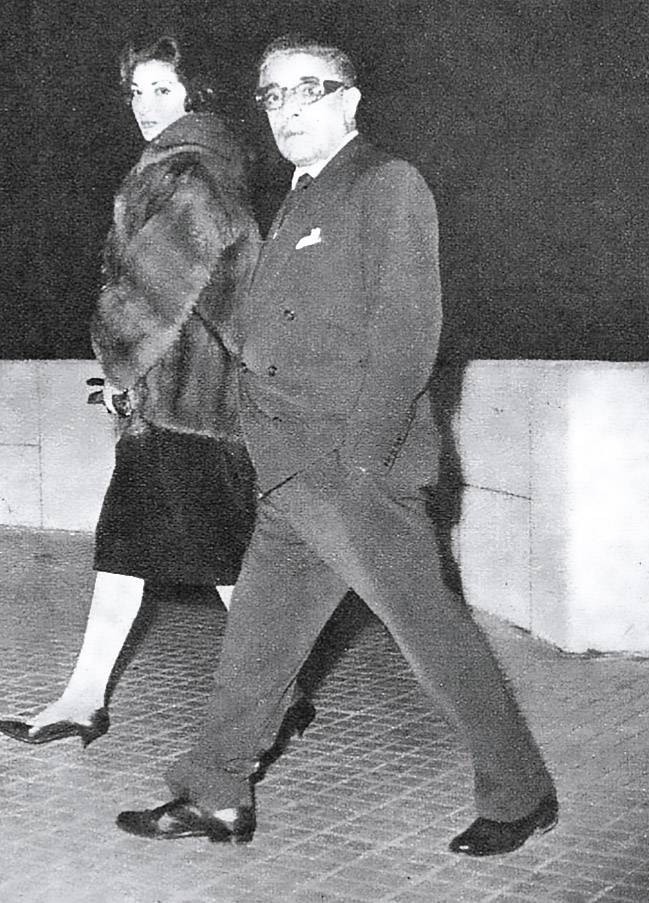
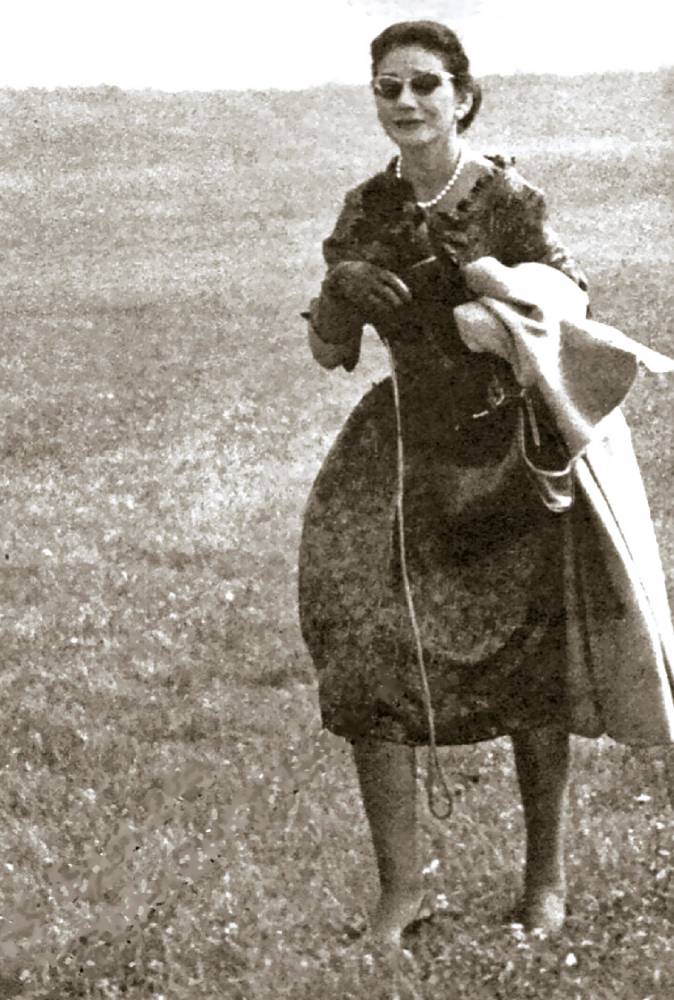
Having suffered body shaming since she was a child, she was always insecure about her weight. A beautiful diva, yes, but she was a woman at odds with herself.
It’s no secret that Callas wanted to have children, yet Meneghini refused to father a child. In a letter to her American lawyer, written in 1959, she confessed they had lived platonically since 1951.
To protect his pride and serve his ego, Meneghini started a rumour that Callas entered menopause before the age of thirty. A lie, as her personal papers can attest.
In her letters to trusted friends, the symptoms she described would point to endometriosis – a condition still misunderstood and difficult to diagnose today.
Her doctor did investigative surgery and inserted polypropylene mesh into her pelvis. The practise is controversial and many women are now suing their health practitioners, as the mesh has affected their quality of life.
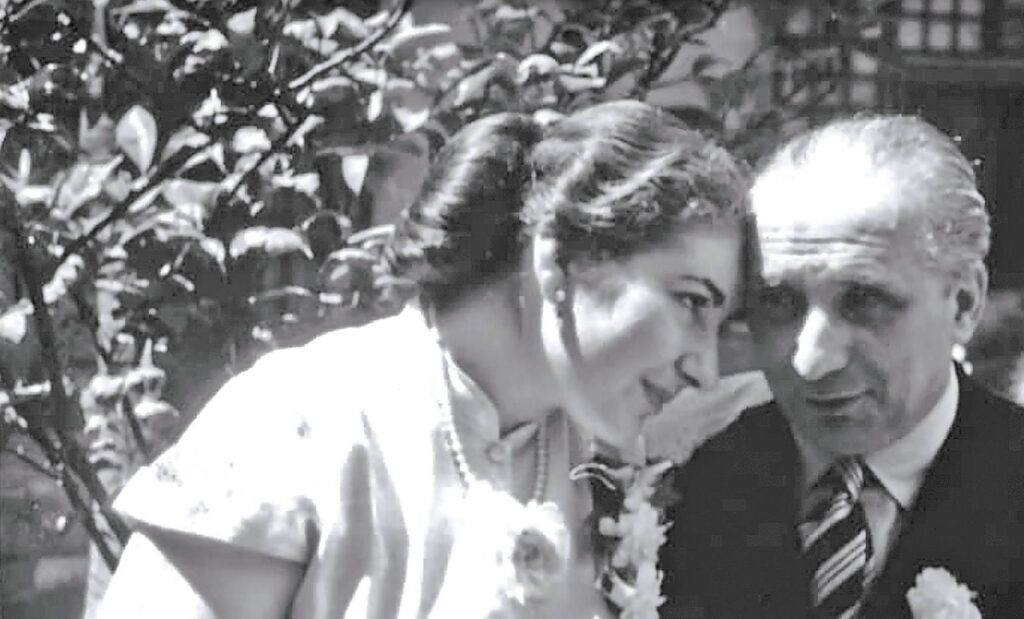
As Callas’s letters prove, she had chronic pain and her own quality of life was greatly compromised.
There were also neurological issues: the reason for many cancelled performances and the unpredictable nature of her voice.
With an understanding doctor and medication, she could have been spared public ridicule and the private fear that she was losing her mind.
This was proven in letters from 1974-76, in which she detailed her latest symptoms: internal bleeding, labyrinth vertigo, temporary blindness, low blood pressure, lack of reflexes, numbness, and dexterity issues.
She named the neurologist who treated her, Prof. Mario Giacovazzo, and I managed to track him down in Rome before his death.
Prof. Giacovazzo diagnosed her with dermatomyositis, a disease that causes muscle weakness, and to an extent, affects the central nervous system. It would have been responsible for the ailments – autoimmune disorders – that had bothered her since the 1950s, and for which she was accused of being a hypochondriac. There was, and is, no cure but she was prescribed prednisone (steroids) to alieve her symptoms. ‘Now with his cure, I am much calmer,’ she wrote to her godfather. ‘Pills, of course, but good ones not heavy drugs.’ However, she stopped taking prednisone, as she gained weight – a common side effect. ‘I am angry because it takes a severe diet and still I have not seen one kilo lost.’ She stopped the treatment and her symptoms returned, causing her to suffer throughout the day and difficulty sleeping at night.
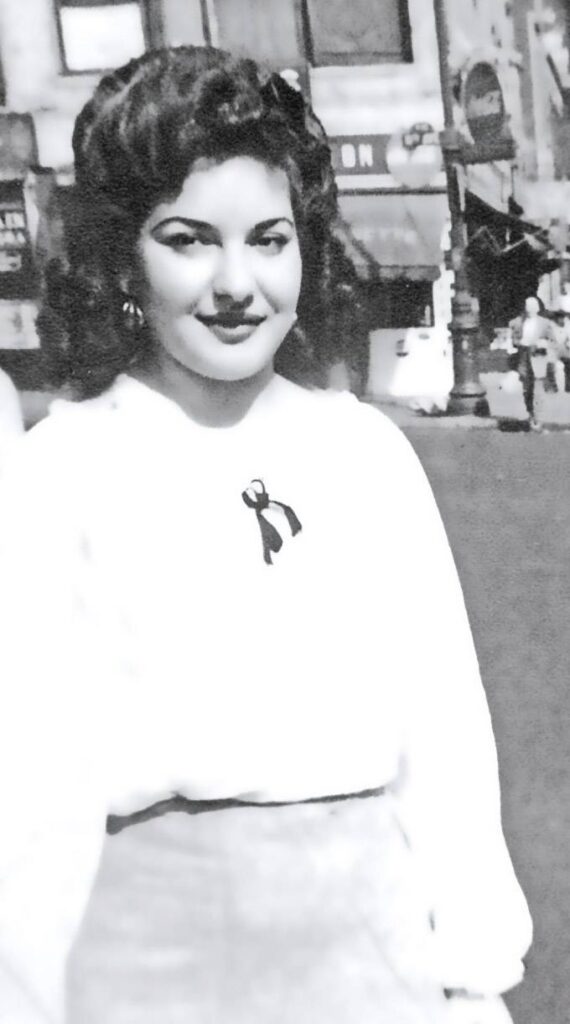
In her last days, she self-medicated with Mandrax, a dangerous drug known to sedate the nervous system. She did this to ease her pain and make life bearable. Unfortunately, it also became an addiction. On 16 September 1977, she died suddenly.
Today, she is a myth and the truth about her life makes people uncomfortable.
Perhaps they cannot fathom how she suffered. It’s important to remember Maria Callas was a human, who was equally let down by her fellow humans.
People were, and are, happy to profit from Callas but who was there to protect her?
